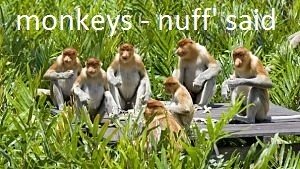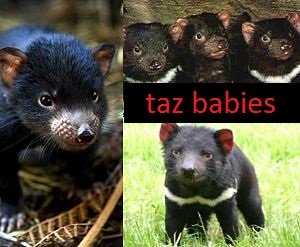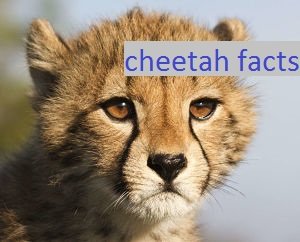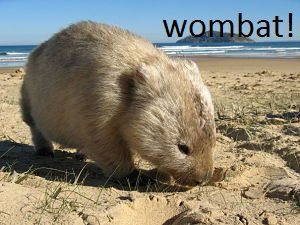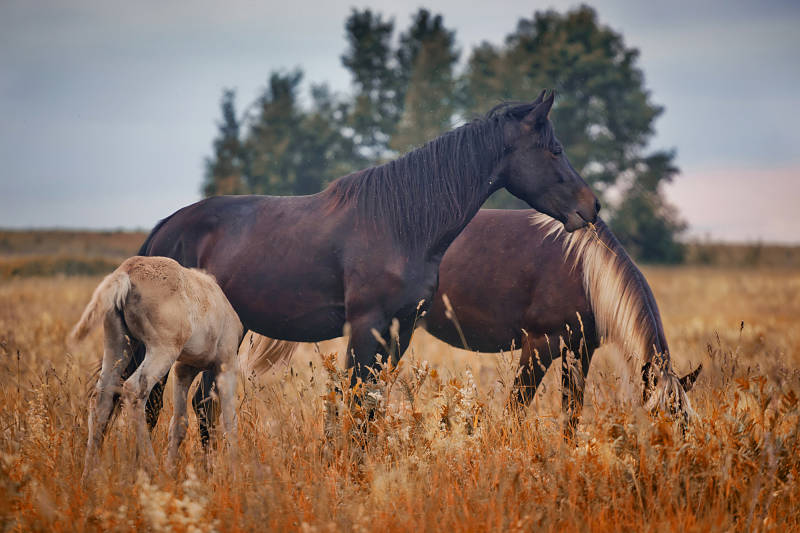Mustang Horse
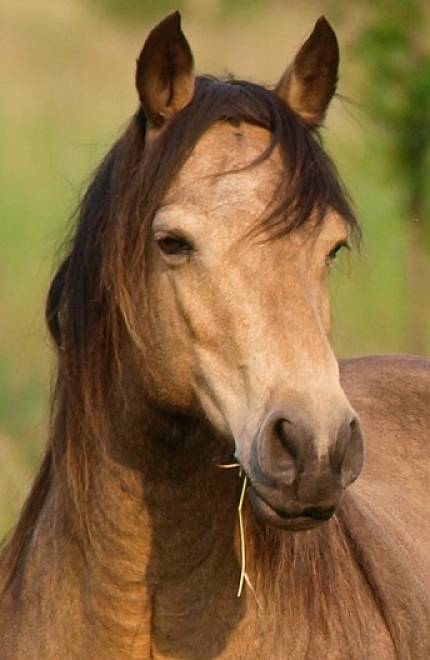 Portrait of a Mustang Horse
Portrait of a Mustang HorseThe mustang horse is the classic wild horse of the Old West.
Horses originally existed in the Americas until their extinction about 10,000 years ago. It wasn't until the late 1400's and early 1500's when explorers including Columbus, brought horses back to the new world.
The horses they reintroduced were Arabian and Spanish Barb horses, small, swift and tough.
They were accustomed to harsh desert environments, and quickly began to populate South, Central and North America, where they are known today as mustangs.
So mustangs did not originate in the Americas, and they were descended from domesticated horses.
This is why the mustang horse is considered a feral horse, not a wild horse.
This is an important distinction which has caused some controversy. As a feral species, the mustang does not receive the same protections it might get as a true wild native, and in the past, they have been treated as invasive and a pest.
Today, there are approximately 50,000 mustang horses roaming free in the Western United States.
Most are found on private land, sanctuaries and reservations.
The mustang is a breed of horse that tends to be of small size, but sturdy and strong-boned. They average just under 15 hands at the shoulder, and rarely top 900 pounds.
Mustangs are most often dun, grulla, roan or buckskin in color, although almost all colors and patterns are seen.
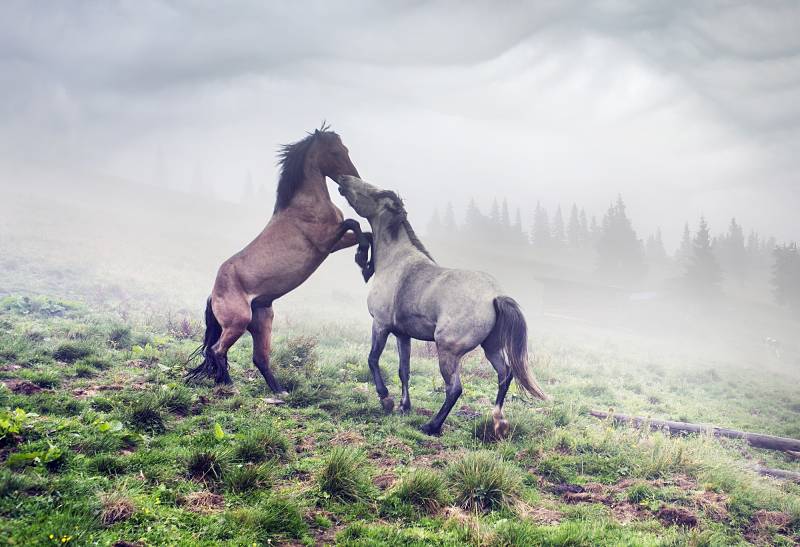
They have thick, brush-like manes and forelocks, and their eyes are set further on the sides of their heads than other breeds, giving them a distinctive look from straight on.
They live in groups of mares and foals, generally guarded by one stallion.
Young males, older stallions, and males that simply don't have the size or aggression level to compete for mares, live in small groups of bachelors.
Competition for mares is constant and highly stressful. A stallion must be on continual alert for rivals, and will attempt to ward them off.
Fights are very common and include strikes with the forefeet, kicks with the hindfeet, wrestling, headbutting and vicious biting.
Victors will often down their opponent by rearing up and pushing them over. The loser is vanquished, and injuries are common, including gashes from hooves and teeth, and injured or even broken limbs.
Fighting to the death is rare, but death may occur sometime after the actual battle, from wounds received.
The bureau of land management manages several herds of wild mustangs, and conducts regular adoption events, where citizens can adopt a horse right off the range.
Mustangs properly trained and lovingly cared for make amazing riding horses and have even competed in high level competitions such as reining, barrel racing, endurance and even show jumping.
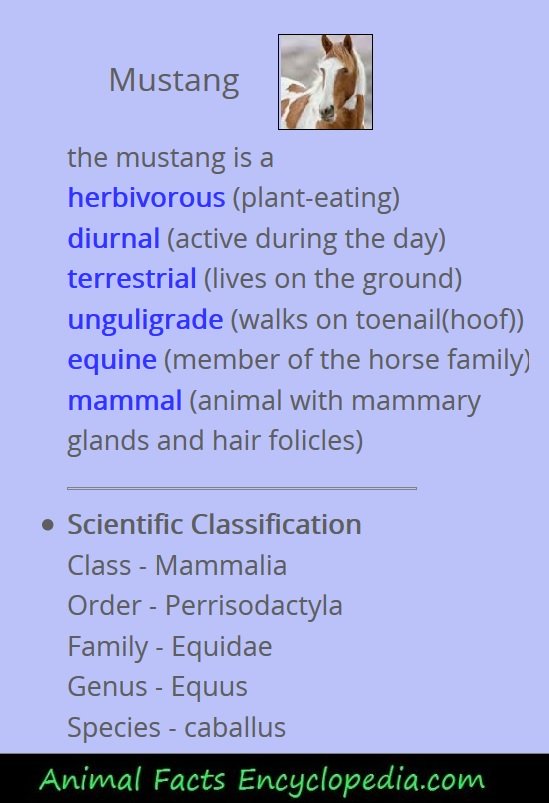
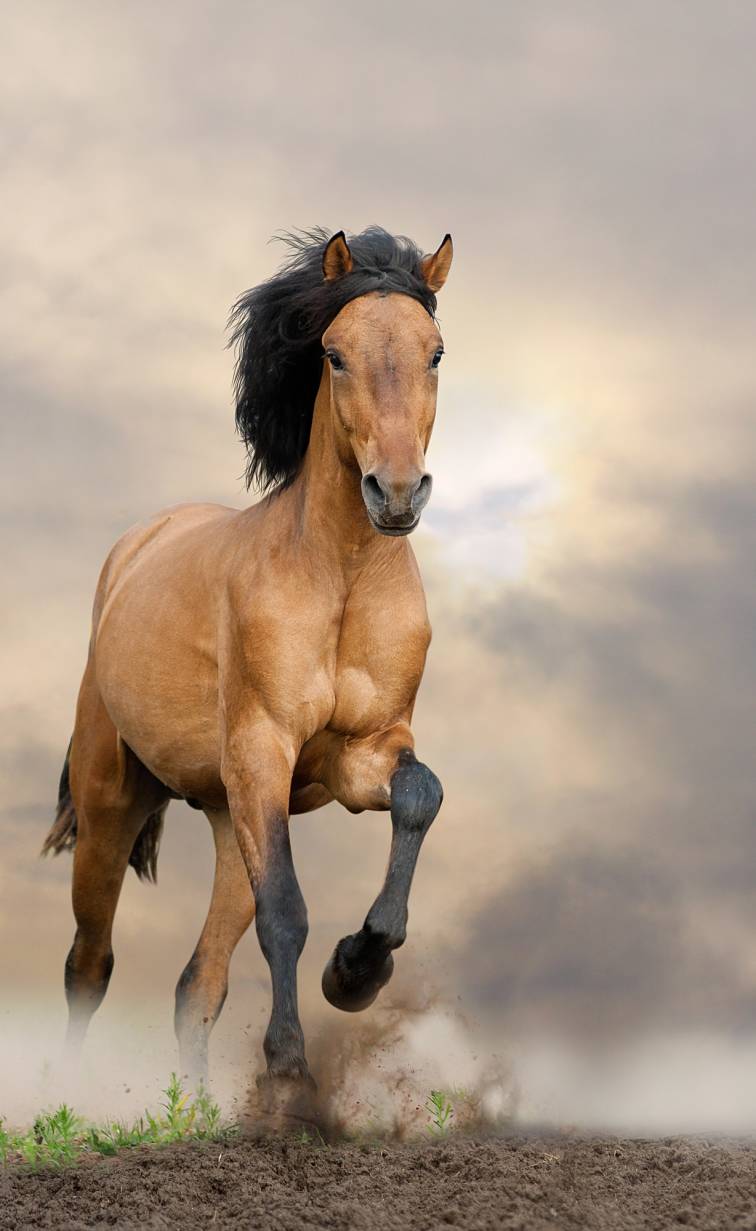
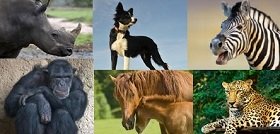
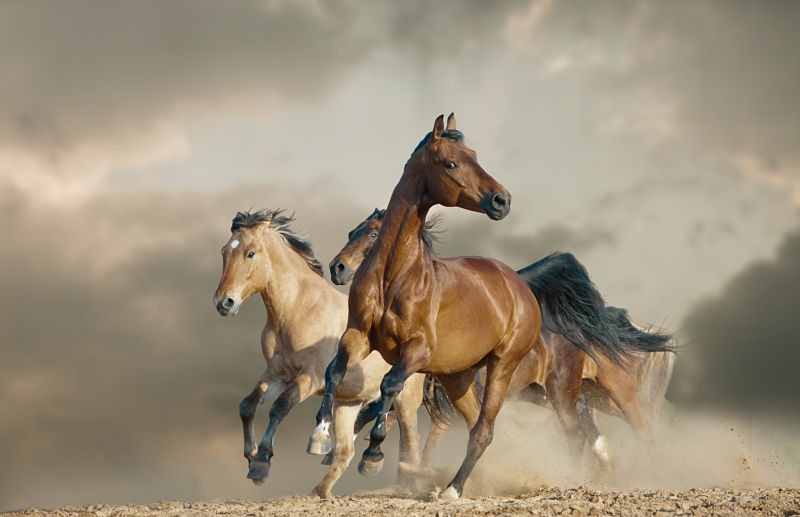
a few more Mustang Horse facts
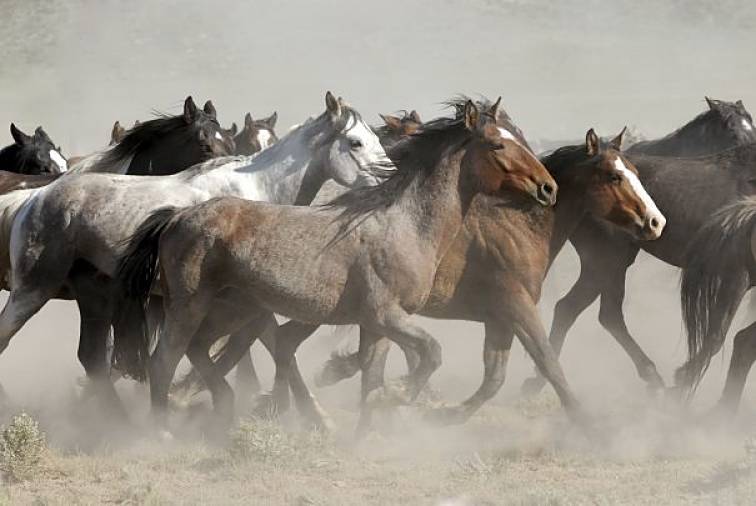
- Mustangs average about 56 inches at the shoulder
- They weigh between 700 and 900 pounds
- There are approximately 50,000 wild mustangs
- There is a controversy over whether they are feral or truly wild
- Mustangs can run up to 35 miles an hour
- They have one of the longest life spans of horse breeds - sometimes 40 years!
see more animal extreme closeups
Recent Articles
-
African Animals - Animal Facts Encyclopedia
Oct 11, 16 10:27 PM
African Animals facts photos and videos..Africa is a wonderland for animal lovers, and a schoolroom for anyone who wants to learn about nature, beauty and the rhythm of life -
Baboon Facts - Animal Facts Encyclopedia
Oct 11, 16 10:26 PM
Baboon facts, photos, videos and information - Baboons are very distinctive looking monkeys with long, dog-like snouts and close set eyes. -
Great Apes Facts - Animal Facts Encyclopedia
Oct 11, 16 10:25 PM
Great apes facts, photos and videos..Human beings did not evolve from chimpanzees, modern chimps and gorillas do not appear in the fossil records until much more recently than homo sapiens..
